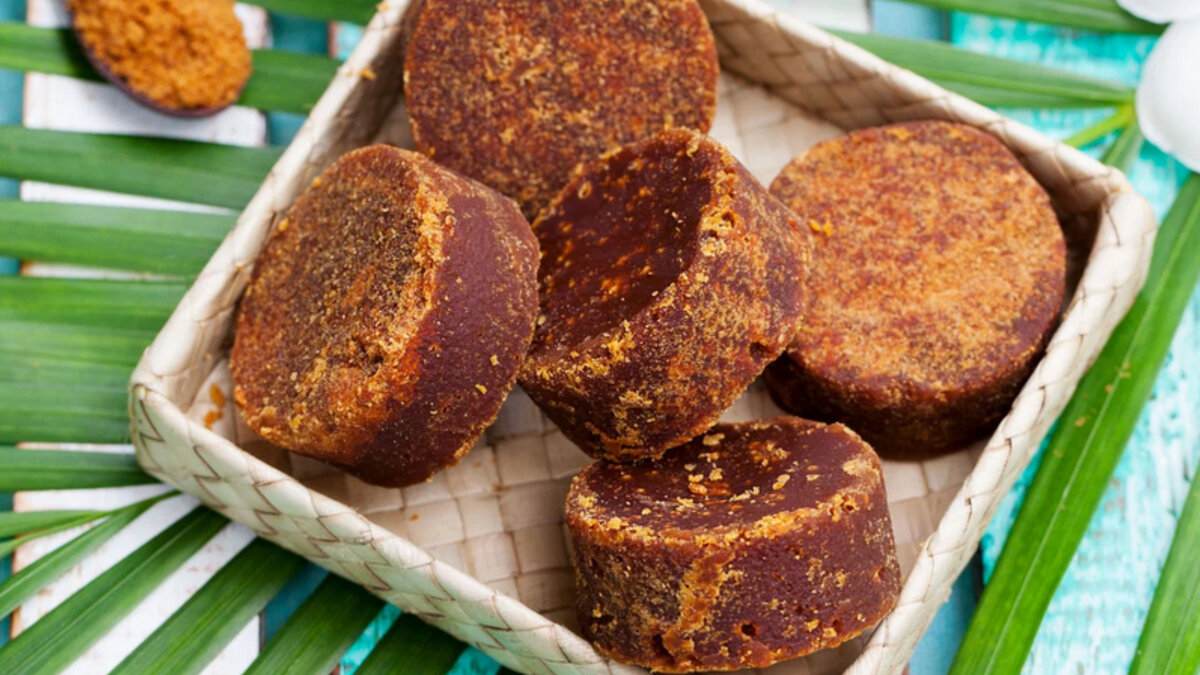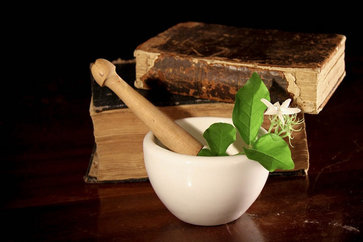What is Jaggery and What Benefits Does it Have?
Jaggery, a natural sweetener, not only provides a delightful taste but also offers numerous health benefits. It is considered more nutritious than refined white sugar and has gained popularity as a healthier substitute sweetener. In fact, jaggery has been attributed to health, often being referred to as a “superfood sweetener.”
One of the notable advantages of consuming jaggery is its positive impact on digestive health. It aids in improving digestion and can help alleviate common digestive issues. Additionally, jaggery is known for its potential to support liver detoxification, making it beneficial for overall liver health.
What is Jaggery?
Jaggery, also known as “gur” in India and some regions, it is a traditional form of unrefined sugar that is made from sugarcane juice or palm sap. It is widely consumed in various cultures around the world as a healthier alternative to refined sugar. Jaggery is known for its rich, caramel-like flavor and its distinctively natural texture.
Jaggery, a popular unrefined sugar product, is primarily produced in Asia and Africa. Unlike refined sugar, jaggery retains its nutritious molasses because it undergoes minimal processing. This distinguishes it as a “non-centrifugal sugar.” While different regions have their own names for similar non-centrifugal sugar products, jaggery remains a widely recognized term.
Various countries have their own versions of non-centrifugal sugar, including:
- Gur: India.
- Panela: Colombia.
- Piloncillo: Mexico.
- Tapa dulce: Costa Rica.
- Namtan tanode: Thailand.
- Gula Melaka: Malaysia.
- Kokuto: Japan.
- Mascabado: Philippines.
- Rapadura: Brazil.
- Batavia brown sugar: Indonesia.
- Chancaca: Peru.
- Qand: Afghanistan.
- Nattu sakkarai: Tamil Nadu, India.
- Kithul Jaggery: Sri Lanka.
India remains the largest producer of jaggery, accounting for approximately 70% of the world’s production. In India, it is commonly known as “gur.” While sugar cane is the primary source for jaggery production, several countries also make jaggery from date palms or other local sources.
The Process of Making Jaggery
Jaggery is made through a simple and traditional process. The extracted juice from sugarcane or palm sap is heated and concentrated until most of the water content evaporates. The thickened syrup is then transferred to molds, where it solidifies and takes the shape of the mold. Once cooled, the jaggery is ready to be consumed.
The production of jaggery involves the following steps:
1. Extraction of Juice: The process begins with extracting the juice from either sugarcane or palm sap. For sugarcane, the stalks are crushed to extract the sweet juice, while for palm sap, the sap is collected from the tree’s trunk.
2. Heating and Boiling: The extracted juice is transferred to large, open pans or vessels. It is then heated over a medium flame. As the juice heats up, impurities and water content start to evaporate, leaving behind a thick syrup.
3. Continuous Stirring: The syrup is continuously stirred during the heating process to ensure even heating and prevent it from sticking to the pan. As the liquid reduces further, it thickens and undergoes a color transformation, turning into a rich, golden brown or dark amber shade.
4. Cooling and Solidifying: Once the syrup reaches the desired consistency, it is poured into molds or shallow trays. The syrup is left to cool and solidify, taking the shape of the mold. This solidified jaggery can be further processed into different forms such as blocks, cubes, or discs for easier storage and usage.
5. Minimal Processing: Unlike refined sugar, jaggery undergoes minimal processing. It is not subjected to the spinning or centrifuging process used to separate molasses from sugar crystals. This helps retain the natural molasses and minerals present in jaggery, ensuring a healthier and more wholesome sweetener option.
By following these steps, jaggery is produced in a traditional and simple manner, emphasizing the preservation of its natural properties.
This process allows jaggery to retain its unique flavors, nutritional value, and caramel-like taste, making it a desirable alternative to refined sugar.
Nutritional Value of Jaggery
Jaggery is not just a sweetener; it also packs a nutritional punch. It is rich in essential minerals like iron, magnesium, and potassium. Additionally, jaggery contains small amounts of vitamins and antioxidants, making it a healthier choice compared to refined sugar.
Per 100 grams of jaggery, here is an approximate breakdown of its nutritional value:
- Calories: 383 kcal
- Carbohydrates: 97 grams
- Sugars: 65 grams
- Protein: 0.4 grams
- Fat: 0.1 grams
- Fiber: 0 grams
- Iron: 11 milligrams
- Calcium: 85 milligrams
- Potassium: 1050 milligrams
- Magnesium: 70 milligrams
- Phosphorus: 20 milligrams
- Vitamin B1 (Thiamin): 0.01 milligrams
- Vitamin B2 (Riboflavin): 0.08 milligrams
- Niacin: 0.1 milligrams
Please note that these values are approximate and can vary depending on the specific type and brand of jaggery.
Health Benefits of Jaggery
1. Rich in Antioxidants
Jaggery is a natural source of antioxidants that help fight harmful free radicals in the body, reducing the risk of various diseases and promoting overall well-being.
2. Boosts Immunity
The presence of minerals and antioxidants in jaggery helps strengthen the immune system, protecting the body against infections and diseases.
3. Digestive Health
Jaggery aids digestion by stimulating digestive enzymes and improving nutrient absorption. It can help alleviate digestive issues like constipation and indigestion.
4. Anemia Prevention
Due to its iron content, jaggery can contribute to preventing and treating iron deficiency anemia, a condition characterized by low levels of red blood cells in the body.
5. Skin and Hair Health
Consuming jaggery promotes healthy skin and hair due to its mineral content. It helps in maintaining a clear complexion and strengthening hair follicles.
6. Relieves Joint Pain
Jaggery possesses anti-inflammatory properties that can help reduce joint pain and inflammation, providing relief to individuals with arthritis or other joint-related ailments.
7. Respiratory Health
Jaggery is known for its ability to soothe respiratory problems such as asthma and bronchitis. It helps clear the respiratory tract and provides relief from symptoms.
8. Weight Management
Compared to refined sugar, jaggery has a lower glycemic index, which means it releases energy slowly, keeping you fuller for longer and aiding in weight management.
9. Natural Cleanser
Jaggery acts as a natural cleanser, flushing out toxins from the body and purifying the blood. It helps maintain healthy liver function.
10. Provides Energy
Jaggery is a great source of instant energy due to its high carbohydrate content. It is often consumed by athletes and individuals involved in physically demanding activities.
How to Incorporate Jaggery into Your Diet
There are numerous ways to include jaggery in your daily diet. You can use it as a sweetener in beverages like tea, coffee, or milk. It can also be used as a substitute for refined sugar in baking and cooking. Additionally, jaggery can be enjoyed on its own as a delectable treat.
Is Jaggery Better Than Refined Sugar?
Jaggery is often considered a better alternative to refined sugar due to several factors. Here’s why jaggery is often regarded as a healthier option:
1. Unrefined Nature: Jaggery is unrefined, which means it undergoes minimal processing compared to refined sugar. This minimal processing helps retain the natural molasses and minerals present in sugarcane or palm sap, making jaggery a more wholesome sweetener.
2. Nutritional Value: Jaggery contains trace amounts of vitamins and minerals, including iron, calcium, potassium, and magnesium. While the exact nutrient content varies depending on the source and processing, jaggery generally retains more nutrients compared to refined sugar, which is stripped of the most beneficial compounds during processing.
3. Lower Glycemic Index: Jaggery typically has a lower glycemic index (GI) compared to refined sugar. The glycemic index is a measure of how quickly a food raises blood sugar levels. Foods with a lower GI release glucose more slowly into the bloodstream, providing a steadier and more sustained energy release.
4. Flavor and Taste: Jaggery has a distinct flavor profile with a caramel-like taste. Its rich and natural flavor can enhance the taste of various dishes and beverages, reducing the need for additional sweeteners.
5. Traditional and Natural Choice: Jaggery has been used for centuries in traditional medicine systems like Ayurveda for its perceived health benefits. It is seen as a more natural and traditional choice compared to refined sugar, aligning with the preference for whole and minimally processed foods.
Note: Ultimately, the choice between jaggery and refined sugar depends on personal preferences, dietary needs, and health considerations.
Incorporating a variety of natural sweeteners, including jaggery, into a well-balanced diet is a good approach to promoting overall health and enjoyment of food.
Where to Buy Jaggery
Jaggery is readily available in most grocery stores, health food stores, and online marketplaces. Look for organic and pure varieties to ensure the best quality and health benefits.
Does Jaggery Have Negative Health Effects?
While jaggery is generally considered a healthier alternative to refined sugar, it is important to be aware of its potential negative health effects when consumed in excessive amounts or in certain circumstances. Here are some points to consider:
1. Caloric Content: Jaggery is still a source of calories and carbohydrates. Consuming it in large quantities can contribute to weight gain and may not be suitable for individuals on calorie-restricted diets.
2. Natural Sugar: Jaggery is a natural sweetener and primarily consists of sucrose. While it offers some nutritional benefits compared to refined sugar, it is still important to moderate overall sugar intake, including jaggery, especially for individuals with diabetes or those at risk of developing insulin resistance.
3. Blood Sugar Impact: Jaggery can cause a spike in blood sugar levels due to its high sugar content. Individuals with diabetes should monitor their blood sugar levels and consume jaggery in moderation, accounting for it within their overall carbohydrate intake.
4. Caries Risk: Jaggery, like any other sweetener, can contribute to tooth decay and cavities if proper oral hygiene practices are not followed. It is advisable to rinse the mouth with water after consuming jaggery or to brush your teeth regularly.
5. Quality and Source: The quality and source of jaggery can vary. It is essential to choose high-quality, pure jaggery without any additives or impurities. Additionally, jaggery made from certain sources, such as date palm or sugarcane grown with excessive pesticide use, may carry potential health risks associated with chemical residues.
Note: Consulting with a healthcare professional or registered dietitian can provide personalized guidance based on specific dietary needs and health conditions.
Conclusion
Jaggery is not just a sweet delight; it is a healthier alternative to refined sugar with an array of health benefits. From boosting immunity to aiding digestion and promoting radiant skin, jaggery offers a natural way to indulge your sweet tooth while caring for your well-being. So why wait? Embrace the goodness of jaggery and savor its natural sweetness.
Frequently Asked Questions (FAQs) on Jaggery
Q1: Is jaggery suitable for individuals with diabetes?
A1: Individuals with diabetes should consume jaggery in moderation and monitor their blood sugar levels carefully.
Q2: Does jaggery have any impact on weight management?
A2: Yes, jaggery has a lower glycemic index compared to refined sugar, making it a better option for weight management when consumed in controlled amounts.
Q3: Can jaggery be used in baking and cooking?
A3: Absolutely! Jaggery can be used as a substitute for refined sugar in various baking and cooking recipes.
Q4: Is jaggery a good source of iron?
A4: Yes, jaggery contains iron and can contribute to preventing and treating iron deficiency anemia.
Q5: Can jaggery be stored for a long time?
A5: Jaggery can be stored for an extended period if kept in an airtight container in a cool and dry place.
References
- Alternative Sweeteners Production from Sugarcane in India: Lump Sugar (Jaggery)(1)
- Review on Recent Advances in Value Addition of Jaggery based Products(2)
- Clinical Practice Guideline: Irritable bowel syndrome with constipation and functional constipation in the adult(3)
While jaggery offers certain advantages, it’s important to remember that it is still a form of sugar and should be consumed in moderation. Individuals with diabetes or those following specific dietary guidelines should monitor their overall sugar intake, including jaggery.


























